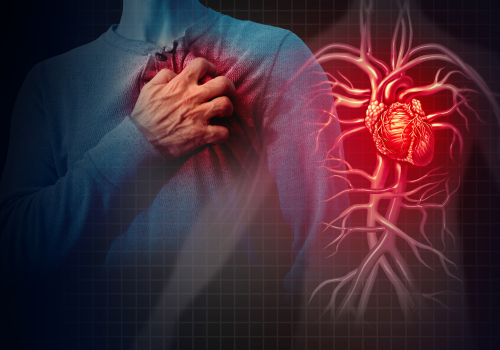Cardiology in Emergency Medicine: Handling Heart Attacks and More.
Cardiovascular diseases are among the leading causes of mortality globally, making the role of cardiology in emergency medicine crucial. Immediate and efficient cardiac care can often mean the difference between life and death, particularly in the case of heart attacks. Emergency cardiology services, such as those provided by the best multispeciality hospital in Ghaziabad—a well-recognized, affordable multispeciality hospital with 24-hour emergency services—play a pivotal role in saving lives and improving patient outcomes.
The Vital Role of Emergency Cardiology
Emergency cardiology deals with acute cardiac conditions that require immediate attention to prevent severe complications or death. These conditions include heart attacks, arrhythmias, heart failure, and cardiac arrest, among others. The first few hours during a cardiac event are critical, and the quality of care provided during this time is a significant determinant of both survival and quality of life post-recovery.
Understanding Heart Attacks
A heart attack, or myocardial infarction, occurs when blood flow to part of the heart muscle is abruptly blocked, causing tissue damage or death due to lack of oxygen. The primary goal in managing a heart attack in an emergency setting is to quickly restore blood flow, typically through medication, catheter-based procedures like angioplasty, or surgery.
Facilities and Technologies at the Forefront of Emergency Cardiology
At the best multispeciality hospital in Ghaziabad, the emergency cardiology department is equipped with state-of-the-art medical technology and staffed by a team of highly trained cardiologists and emergency medicine specialists. These professionals are ready to deliver critical care around the clock, ensuring that patients receive the most advanced treatment options available.
Cutting-edge Diagnostic Tools
Rapid and accurate diagnosis is essential in emergency cardiology. Facilities at leading hospitals include:
- Electrocardiograms (ECGs): These are used to quickly assess the heart’s electrical activity and identify abnormalities that may suggest a heart attack or other cardiac event.
- Echocardiograms: Utilized to visualize the heart's structure and function, helping to detect areas of poor blood flow and damage.
- Cardiac Catheterization Laboratories: Often available 24/7 at top hospitals, these labs allow doctors to perform urgent angioplasty and stenting procedures to reopen blocked arteries.
Immediate Interventions
The emergency cardiology services in Ghaziabad provide rapid interventions, including:
- Thrombolytic Therapy: Administering clot-busting drugs to dissolve blood clots that are obstructing coronary arteries.
- Percutaneous Coronary Intervention (PCI): A non-surgical procedure that involves using a catheter to place a stent to open up blood vessels in the heart that have been narrowed by plaque buildup.
- Coronary Artery Bypass Grafting (CABG): In more severe cases, surgery might be required to reroute blood around clogged arteries to improve blood flow to the heart.
Comprehensive Care Beyond Immediate Treatment
Beyond addressing the immediate threat to life, the best multispeciality hospital in Ghaziabad provides comprehensive post-emergency care, which is crucial for full recovery and future prevention. This includes:
- Cardiac Rehabilitation: A personalized program to help patients recover, improve their physical fitness, and implement heart-healthy lifestyle changes.
- Education on Disease Management: Teaching patients about their conditions and how to manage their health to prevent future episodes.
- Regular Follow-ups and Monitoring: Ensuring that patients remain healthy through ongoing care and adjustment of treatments as needed.
Importance of Accessible and Affordable Care
The availability of affordable, high-quality emergency cardiology care is vital for community health. The hospital in Ghaziabad makes leading-edge care accessible to a broader population by offering services at a reasonable price point without compromising on the quality of care. This approach not only saves lives but also reduces the long-term public health costs associated with cardiovascular diseases.
The Impact of 24-Hour Emergency Services
Having a 24-hour emergency hospital that specializes in cardiology ensures that patients who suffer from acute cardiac events can receive immediate attention regardless of the time of day. This round-the-clock readiness is crucial for heart attack victims, for whom delays in care can be fatal.
Conclusion
The integration of cardiology into emergency medicine has dramatically transformed the way acute cardiac events are handled. At the best multispeciality hospital in Ghaziabad, patients can expect world-class emergency care that combines speed, expertise, and the latest in medical technology to provide the best possible outcomes following a heart attack or other serious cardiac incident. The presence of affordable, high-quality, 24-hour emergency services ensures that every patient has the best chance at not just survival, but a full and rapid recovery. As the field of cardiology continues to advance, the emphasis on emergency care and ongoing management will remain essential in the fight against heart disease.




Comments
Post a Comment